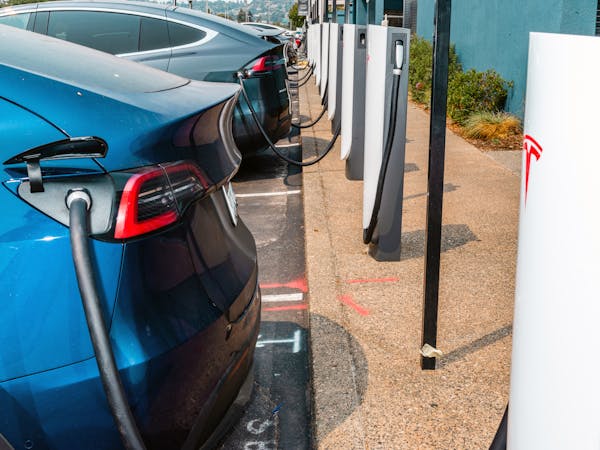If we are going to work our way out of the climate change dilemma, we must challenge our imaginations and embrace a new future of electrification based on carbon-free sources of energy.
Not that long ago we relied on horses and coal for transport and heating. The carbon-based energy revolution of the 20th century must give way to the renewable energy electrification revolution of the 21st century. Will Minneapolis rise to this challenge and lead?
The Biden administration's climate bill is the widest reaching effort to mitigate climate change in American history. It provides tax credits to make heat pumps, rooftop solar, electric furnaces, battery storage and electric water heaters more affordable both for retrofits and new construction. It provides credits for electric vehicles. It provides more than $1 billion to make affordable housing more energy efficient. It creates a "green bank" to fund clean energy projects, focused on poor communities.
Minneapolis adopted a Climate Action Plan and based its 2040 Plan on it. But that plan is unrealistic and already out-of-date.
The city could help by incentivizing solar generation for all new construction. It could mandate electric heating, electric appliances, and heat pumps for all new construction to utilize renewable sources.
The city's zoning must preserve solar rights for existing buildings, especially residential housing. Unfortunately, the 2040 Plan allows much taller buildings in residential areas while eliminating adjacent property owners' ability to object to the loss of their solar rights. This creates a disincentive to make solar investments.
What's more, the city did not include travel by automobile in its long-range plan, which meant it has not planned for the infrastructure needed to shift to electric vehicles.
We will all be driving vehicles in 2040 — and they will be electric vehicles. The city must ensure creation of the charging station infrastructure to support the shift from carbon-based transport.
This also will require reversing Minneapolis's anti-parking policies and expanding space for charging stations. Level 2 chargers should be mandated for all new housing. Adequate parking should be planned in commercial districts, including charging space for both visitors and employees. St. Paul currently offers extensive curbside charging, Minneapolis does not.
The city has also adopted policies that result in travel constraints that needlessly consume more energy. Roadway obstructions, narrowed streets, unused bike lanes, speed bumps, limiting lane capacity on busy thoroughfares and other obstacles force vehicles to slow down and speed up unnecessarily. Every time a vehicle slows down and speeds up, it increases energy consumption and carbon emissions.
The city should focus on roadway design that reduces carbon emissions and energy use. The city's policy of making driving undesirable and forcing us to use our bicycles is borne of misguided smugness.
The city should also protect existing buildings rather than incentivizing their demolition. Over 500 buildings have been demolished since 2018, each representing a carbon debt already paid. New buildings may be more energy efficient, but most will not pay back the carbon cost of their construction. Rehabilitation is almost always the right answer, but the city has adopted policies which incent the destruction of buildings. The policies of the 2040 Plan should be revised to preserve and rehab as much existing housing as possible.
The Biden administration investments will foster clean energy innovations and infrastructure. Will the city of Minneapolis lean into the future or cling to its old, outdated policies? Time is short. We must do better.
Tim Keane, of Minneapolis, is an attorney.





